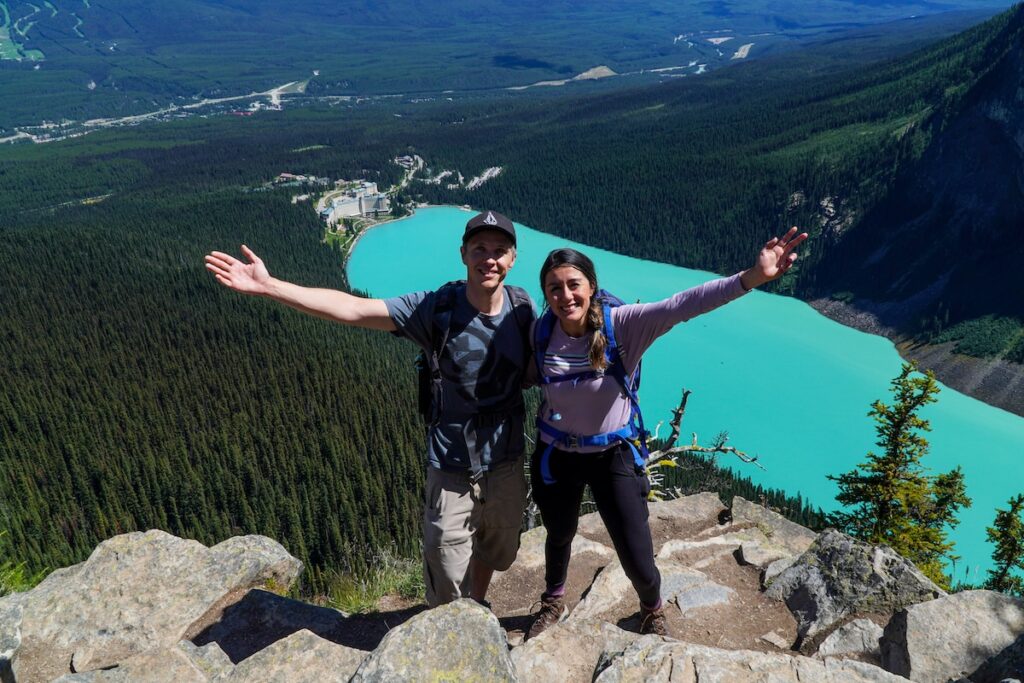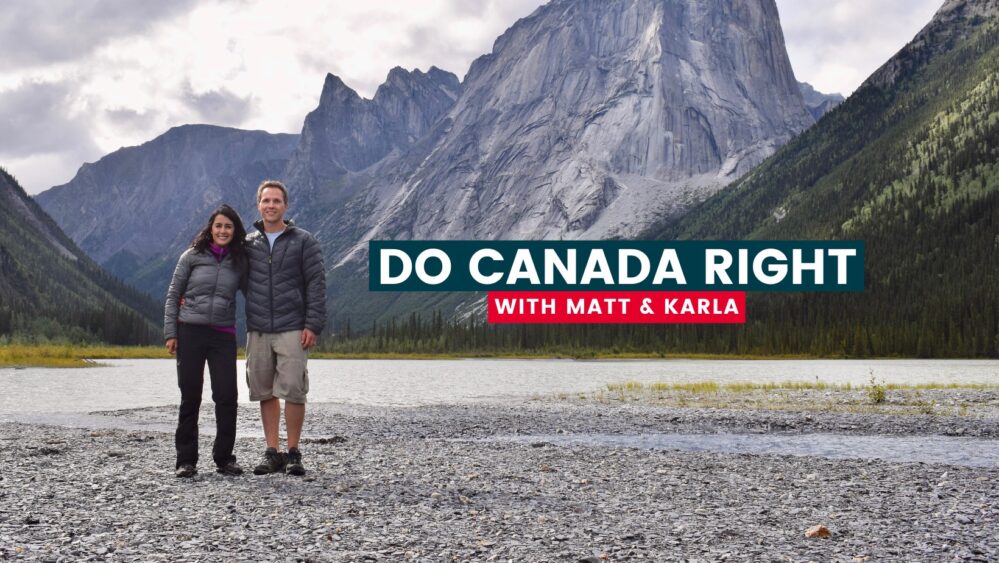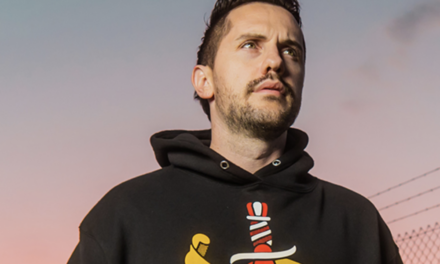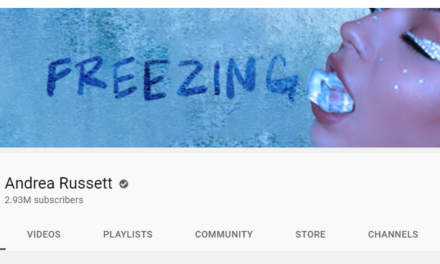Entrepreneurs: Matthew and Karla Bailey
Biz: Must Do Canada
Tilt: Making the most of Canadian travel experiences
Primary Channel: YouTube (74K)
Other Channels: Website (80K monthly), newsletter (50K), Instagram (18.1K), Facebook (16K), Twitter (4K), Pinterest (54.3K monthly views)
Time to First Dollar: Few months
Rev Streams: Website ads, YouTube ads, sponsored content
Our Favorite Actionable Advice:
- Make a pitch: Don’t just ask brands to do deals; create a pitch tailored to what your content business will provide and how they will benefit.
- Create around your strengths: Must Do Canada isn’t just one person’s perspective. It’s a collaboration between a husband who is native to the country and a wife who is a non-native but living in Canada.
- Publish regularly: The duo publishes a structured newsletter every Wednesday so their audience knows when and what to expect.
The Story

In 2011, Canadian Matt Bailey created a niche site called Must Do Canada. In the first six years, no more than 1K visitors checked out the site in a month.
Around that same time, Matt and his wife Karla, who is from Mexico, traveled the world, working sales jobs in between their trips.
But in 2017, the couple living in Canada decided to explore their own massive backyard – a 150-day road trip to the country’s Canada’s 150th birthday. They turned it into a short documentary, Road to 150, and Matt’s hobby niche travel site turned into a business.
Getting a sponsor
Matt and Karla knew they needed a sponsor to execute their documentary plans. So, they created a pitch and sent it to 100 brands that might be interested in sponsoring content about Canadian locations.
Even though they didn’t have any experience or a presence on YouTube, their plan worked. Hotel brand Best Western was looking to do a project around Canada’s sesquicentennial and signed on as the sponsor.
Matt and Karla Bailey's first content project for @MustDoCanada was a 150-day road trip documentary. @BestWestern became their first #sponsor. #ContentEntrepreneurs #CreatorEconomy Share on X“They really liked the idea. Since I’m from Canada and Karla is from Mexico, they liked that someone was from here and someone was not from here,” Matt explains.
Matt and Karla hired a professional videographer to accompany them. They created videos for both their business and Best Western, which they ultimately uploaded to YouTube.
“Must Do Canada is what it is today because of that big project,” Matt says. They were featured on national news outlets in Canada as well as niche media. Those public relations results increased exposure for their brand as a blog and a new YouTube channel.
From there, Matt and Karla advanced their filming and editing skills with a few tips from the Road to 150 videographers and by watching how-to videos.
Why Canada as the content tilt?
Matt is from Canada and has a lot of family spread out across the country, which is one reason they focus on the country. But they also wanted to niche down their content. “We thought it would help us be noticed as people who know everything about Canada. We also plan to have a family and thought it would be easier to travel around Canada all the time,” Matt says.
He explains: “I find that a lot more people are starting these sites based on their city or state or country. It definitely helps us focus on our content.”
Starting a YouTube channel
When they uploaded short clips from their Road to 150 trip to YouTube, their channel grew quickly, earning an average of $80 a month in ad revenue. That’s when they sat down to develop a bigger plan for the business.
At the time, people were searching for things to do in Canada, so their keywords helped their content rank well. Now, they post a video every two weeks and write a corresponding blog post. They earn between $1K and $3K every month in website ad revenue.
Creators of @MustDoCanada post a video every two weeks and write a corresponding blog post. They earn b/n $1K and $3K in ad revenue every month. #CreatorEconomy #ContentEntrepreneurs Share on XThey also have learned when they stray from Canadian travel, such as a video about how to make a trailer, they don’t get as many views.
Following a creation process
First, Matt and Karla decide where they want to travel and come up with content ideas around that location. Then, they reach out to potential local sponsors like tourism boards. They still work with the Best Western and other country or global brands.
Their content calendar is planned two to three months in advance, with a blog post scheduled every Tuesday. They do keyword research to help come up with blog posts and video topics that will attract search attention. Also, since the posts aren’t sponsored, their calendar doesn’t change as often as their video plans do.
@MustDoCanada creates a two- to three-month #ContentCalendar, doing keyword research to come up with topics that will attract search attention. #SEO #CreatorEconomy Share on XThey’ve sent a newsletter for a while, but only when they published something on their blog or YouTube. Now, they regularly publish it every Wednesday with a more structured format and strategy. Every issue features a video, travel guide, featured ad (if they have a sponsor), Canada travel news, and top of the week photo from Instagram. They’ve done giveaways and freebies on their website and other platforms to gain subscribers.
They used to publish to Instagram every day but found it doesn’t make a difference in their traffic. So now they post whenever they want, which is usually twice a week.
Earning revenue
Matt explains the rates they charged brands used to depend on the cost of a videographer. But they’ve adjusted their pricing now that they do the video themselves. “I try to ask other influencers what they charge based on traffic and the amount of work involved,” Matt says.
Matt says 70% of Must Do Canada’s income comes from sponsors on their YouTube channel and newsletter. In 2021, they earned about $100K from sponsored content.
About the author
Bonnie owns Word of Mouth, a content agency specializing in social media, content marketing, and editorial writing. She's written for Marie Claire, Harper’s Bazaar, Coveteur, Man Repeller, Health.com, and more. She loves wearing fanny packs and laying in the fetal position.










